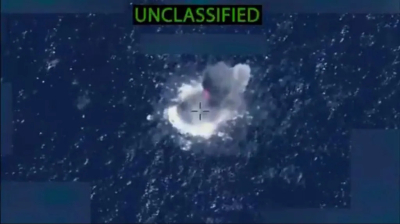The European Union and Latin American nations concluded their fourth summit on November 9 with a 52-point declaration championing multilateralism and containing veiled critiques of US policy.
Fifty-eight countries belonging to the EU and the Community of Latin American and Caribbean States (CELAC) reached consensus on strengthening rules-based international commerce, addressing climate change and defending democratic processes. According to El Pais, Venezuela and Nicaragua declined to sign the final text.
At the EU-CELAC meeting in Santa Marta, Colombia, European Council President António Costa and Colombian President Gustavo Petro Urrego, currently holding the rotating presidency of the regional bloc, sought to prioritise dialogue over division. "Fifty-eight countries have managed to reach an agreement through dialogue. This declaration demonstrates the importance of multilateral dialogue," Costa said at the closing session.
“The current multipolar world requires a multilateral response to the multiple challenges we face,” he added.
Leaders and representatives from both regions reiterated the strategic importance of their bi-regional relationship based on shared values and interests, resilient, inclusive and democratic societies, the promotion and protection of human rights and fundamental freedoms, the rule of law, and free and transparent elections.
The declaration addressed maritime security in the Caribbean without mentioning the US — an implicit reference to missile attacks launched by President Donald Trump's administration against vessels suspected of drug trafficking over the past two months and the US military buildup off the coast of Venezuela.
Leaders also called for a multilateral trading system centred on World Trade Organisation rules, transparent and non-discriminatory, whilst acknowledging "trade tensions" that require reduction. They underlined the need to strengthen the multilateral system, with the United Nations at its core, and to promote more effective, inclusive, transparent and democratic global governance.
On climate, the blocs recognised "the need for significant, rapid and sustained reductions in greenhouse gas emissions," a position that contrasts with Trump's stance on environmental policy.
The declaration backed reforming the UN Security Council "to make it more representative", a longstanding Brazilian objective. Brazilian President Luiz Inácio Lula da Silva, who briefly left the COP30 summit in Belem to attend the meeting, criticised regional fragmentation. "Latin America and the Caribbean are going through a deep crisis in their integration project. We have once again become a balkanised and divided region," he said, adding that regional partners should help prevent conflict in Venezuela.
Despite not being on the formal agenda, the EU-Mercosur partnership agreement featured prominently. Lula said the pact "proves that it is possible to strengthen multilateralism also on the commercial front", expressing hope both blocs could finalise the arrangement at December's Mercosur summit in Rio de Janeiro. The accord would create a market of 718mn people with a combined gross domestic product of $22 trillion.
European Commission vice-president Teresa Ribera said the EU aims to sign the Mercosur deal in December. The political agreement reached in December 2024 awaits ratification by all 27 EU member states, but France maintains its opposition over agricultural concerns.
According to the Commission, over the past decade trade in goods with CELAC has grown by over 52% and trade in services has almost doubled. More than one million jobs in the EU are linked to exports to Latin American and Caribbean states.
Investment initiatives announced include €6.86bn for 24 clean energy projects across Latin America under the Global Gateway programme, with the European Investment Bank contributing €2bn, according to a European Commission statement. A new EU-LAC Supercomputing Network for artificial intelligence received €15mn from the EU, Spain and Brazil. The summit also launched Stormwatch, a disaster preparedness partnership using EU satellite data for Caribbean nations, following Hurricane Melissa's recent devastating impact.
Spanish Prime Minister Pedro Sánchez described the summit as a "geostrategic imperative" amid challenges to free trade and international law. "Europe and Latin America can and must be a beacon of stability, prosperity and openness in this uncertain time full of risks," he said.
However, several regional leaders were notably absent, with Argentina, Paraguay, El Salvador and Peru sending low-level delegations whilst Ecuador abstained entirely. European Commission president Ursula von der Leyen's absence marked the most significant European no-show. German Chancellor Olaf Scholz and French President Emmanuel Macron also declined to attend, Euronews reported.
Uruguay will assume CELAC's pro tempore presidency, with foreign minister Mario Lubetkin pledging to develop a roadmap "to be able to advance concretely and not only in declarations". The next summit will convene in Brussels in 2027.
News

Istanbul-listed Investco, Verusa and Pamel seized in market manipulation prosecution
Market chatter and tensions over rash of business investigations and arrests in Turkey grows louder.
.jpeg)
Iran denies alleged plan to assassinate Israel’s ambassador in Mexico
A series of conflicting statements between Washington, Tel Aviv, Tehran and Mexico City has followed allegations that Iran planned to assassinate Israel’s ambassador to Mexico, Einat Kranz-Neiger.

Russian Lukoil declares force majeure on Iraqi oil
Lukoil, Russia’s second-largest oil company, has declared force majeure on its operations at the West Qurna-2 oil field in Iraq due to the impact of US sanctions

Water shortages reported across Iran's capital as day zero approaches
Iran's water industry spokesman says any planned water restrictions for Tehran residents will be announced in advance. Policy is to manage pressure from midnight to morning, with 10% consumption reduction target through public cooperation.
_1762772645.jpg)
.jpg)

_1761305900.jpg)
_1761050969.jpg)